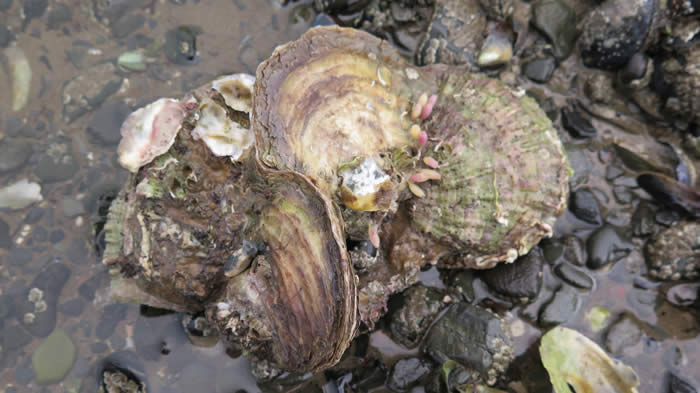Historical and Ecological Importance
Historical Relevance of Ostrea edulis to Wales
The Native oyster, Ostrea edulis, has long been established as a culturally significant species within coastal communities around the UK. In Wales, the Native oyster industry was a renowned socio-economic driver behind many of the coastal communities which exist today. In the mid-1800’s fisheries like those in the Menai Strait and the Conwy estuary had > 60 boats harvesting oysters while beds in Mumbles saw the oystermen repeatedly land > 18 million oysters annually.
O. edulis has been harvested from Welsh waters since the time of the Roman Empire, with archaeological sites such as Caerleon and Caerwent which date back to 75–400AD, revealing remnants of oyster middens. Oysters remained a food source throughout the Middle Ages becoming heavily exploited in the post-medieval period, with the inshore waters of Wales sustaining a productive native oyster fishery for rural communities along its coastline. With the introduction of steam and motor-powered vessels in the early 1900’s fishing efficiency was increased at the detriment of wild stocks contributing to their decline.
Collapse of fisheries
Over the last 200 years O. edulis stocks have suffered due to over-exploitation (lack of regulations defining access and allocation of stocks), disease (the parasite Bonamia ostreae and the protozoan Marteilia refringens), pests (the slipper limpet Crepidula fornicata), pollution (Tributyltin (TBT), hydrocarbons and heavy metals) and severe winters. The combination of these factors has led to the drastic depletion of O. edulis populations around the coast of the UK.
Restoration and ecological importance
In recent years O. edulis has once again become a commercially and ecologically important species. A recent surge in demand for re-stocking and reef restoration initiatives has seen the demand for O. edulis seed has seen the demand increase further, beyond that of production solely for human consumption.
By forming reefs, oysters provide a habitat that facilitates an increase in biodiversity, they serve as a food source, a nursery ground and refuge for numerous species including crustaceans and gastropods, while they have also been shown to boost fish and crustacean stocks. Oyster reefs also provide natural coastal protection as well as permanently sequestering carbon from the atmosphere, an important consideration in mitigating the impact of climate change.
Native Oyster Aquaculture Research (NOAR) project
NOAR will establish a pilot-scale hatchery for O. edulis using innovation to develop the ability to produce oysters year-round for both habitat restoration as well as for human consumption. Critical aspects of hatchery culture will be optimized including broodstock conditioning, reproductive output management, larval rearing and settlement, seed rearing and on-growing, as well as pathogen control. To facilitate increased production in Wales and elsewhere, knowledge transfer to stakeholders will be through workshops and the development of best practice guidelines and protocols.
